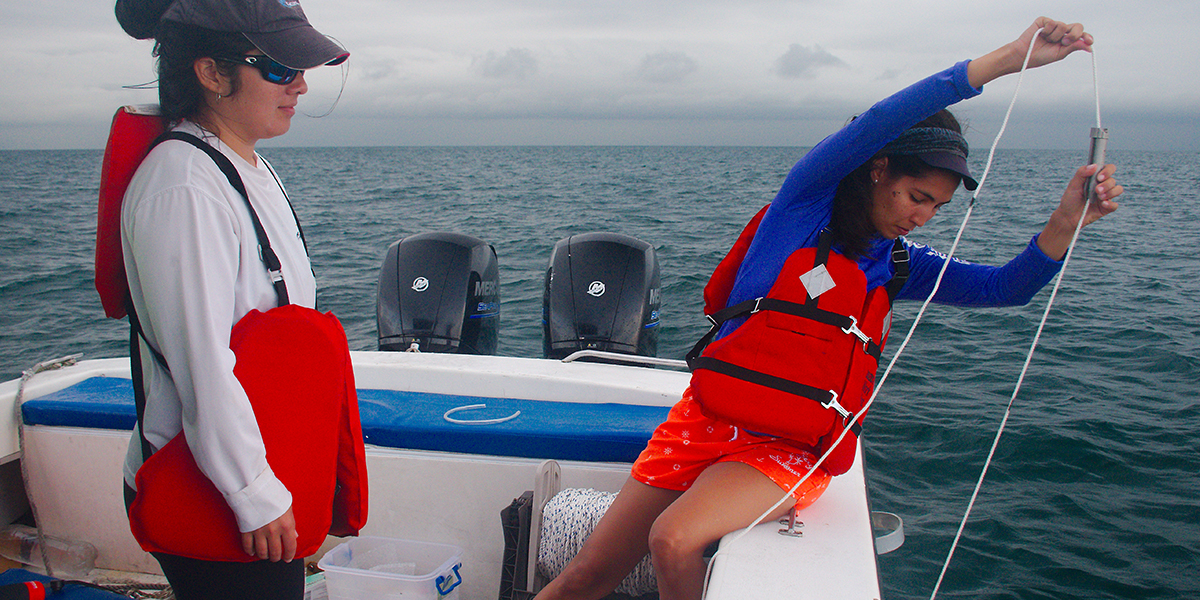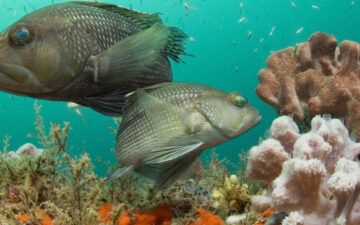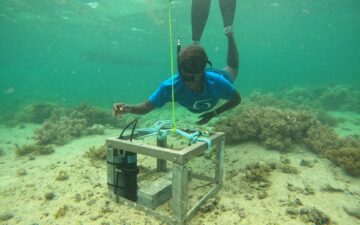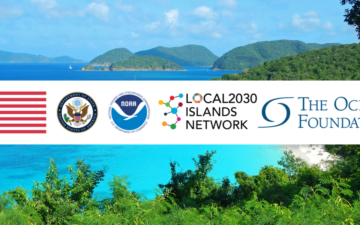A guest blog written by Steve Paton, Director of the Office of Bioinformatics at the Smithsonian Tropical Research Institute who participated in The Ocean Foundation’s Ocean Acidification Monitoring Workshop in Panama.
In a world destined for climate change, if you aren’t monitoring it, you won’t know the train is coming until it hits you…
As the director of the Smithsonian Tropical Research Institute’s (STRI) Physical Monitoring Program, it is my responsibility to provide STRI’s staff scientists, as well as thousands of visiting researchers and students, with the environmental monitoring data that they need in order to carry out their research. For marine researchers, this means that I need to be able to characterize the oceanographic chemistry of Panama’s coastal waters. Among the many variables that we monitor, ocean acidity stands out for its importance; not only for its immediate importance to a wide range of biological systems, but also for how it is expected to be impacted by global climate change.
Before the training provided by The Ocean Foundation, we knew little about measuring ocean acidification. Like most, we believed that with a good sensor measuring pH, we had the issue covered.
Fortunately, the training that we received allowed us to understand that pH alone is not enough, nor was the accuracy that we were measuring pH good enough. We were originally scheduled to participate in the training session offered in Colombia in January 2019. Unfortunately, events made it impossible to attend. We are extremely grateful that The Ocean Foundation was able to organize a special training session just for us in Panama. Not only did this allow my program to receive the training that we needed, but also allowed additional students, technicians, and researchers the opportunity to attend.
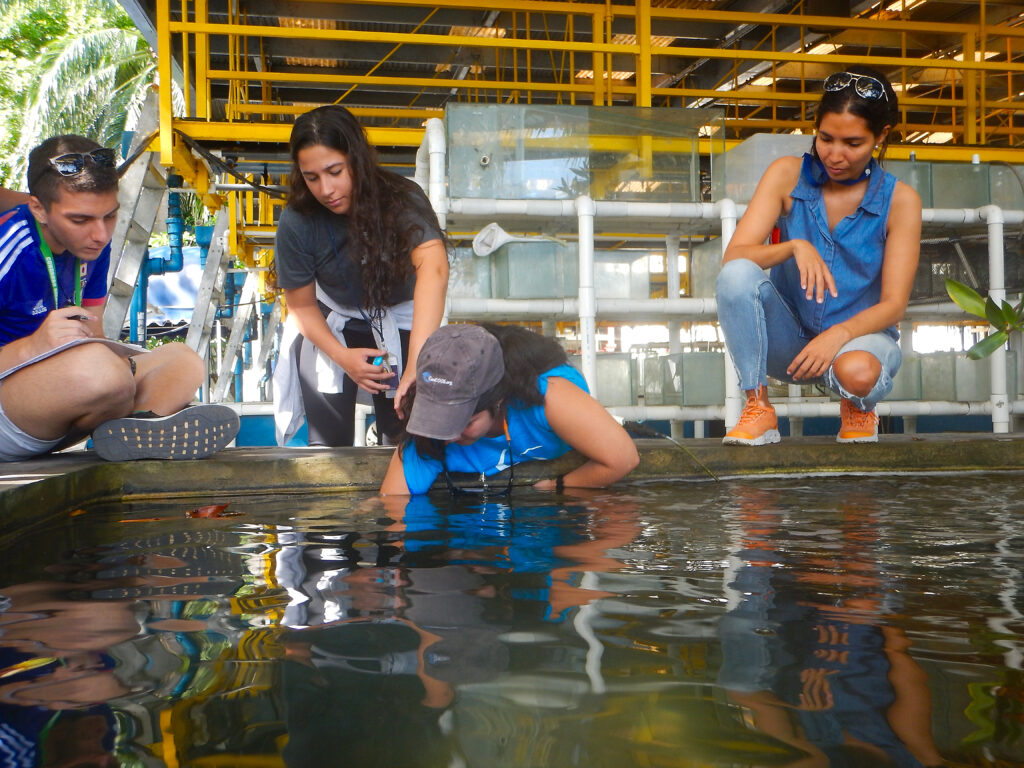
The first day of the 5-day course provided the necessary theoretical background in ocean acidification chemistry. The second day introduced us to the equipment and methodologies. The final three days of the course were designed specifically to provide the members of my Physical Monitoring Program intense, hands-on experience with every single detail covered from calibration, sampling, measurements in the field and in the laboratory, as well as data management. We were given the opportunity to repeat the most complicated and critical steps of the sampling and measurements multiple times until we were confident that we could carry everything out by ourselves.
What surprised me most about the training was the degree of our ignorance about monitoring ocean acidification. There was much that we didn’t even know that we didn’t know. Hopefully, we know enough to be able to measure the phenomenon correctly. We also now know where we can find sources of information and individuals who can help us make sure that we are doing things properly and to make improvements in the future.
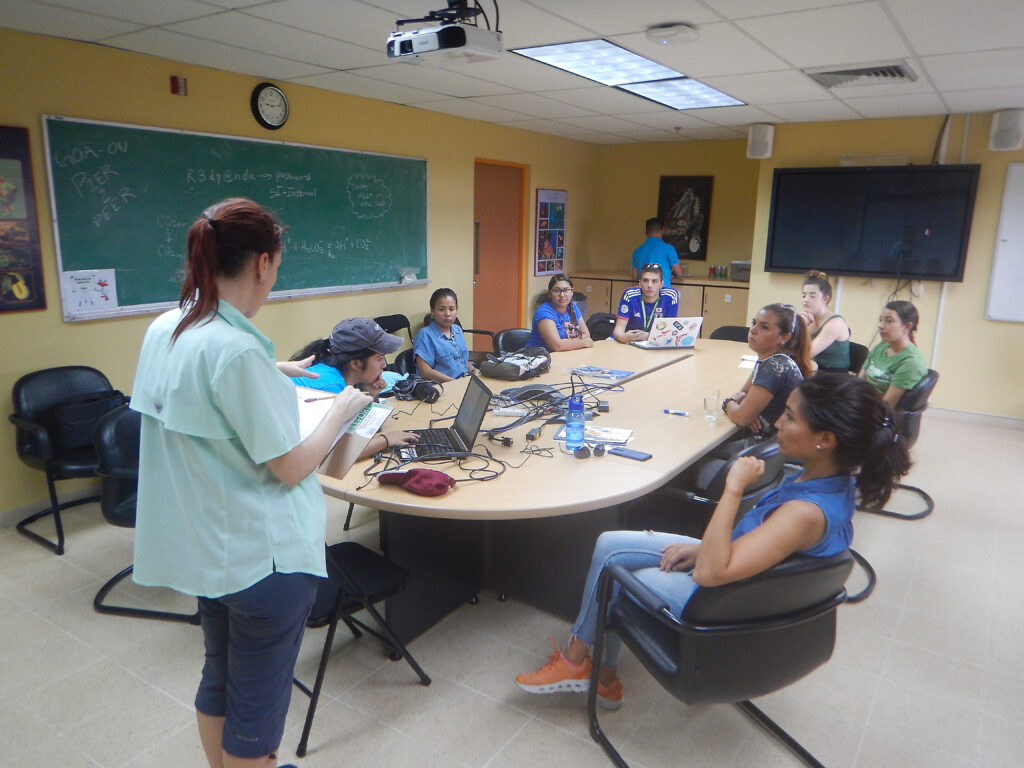
Finally, it is also difficult to sufficiently express our gratitude to The Ocean Foundation and the training organizers and the trainers themselves. The course was well organized and executed. The organizers and trainers were knowledgeable and very friendly. Every attempt was made to adjust the content and organization of the training to suit our particular needs.
It is impossible to overstate the importance of the donation of the equipment and the training provided by The Ocean Foundation. STRI is the only organization in Panama that carries out high quality, long-term ocean chemistry monitoring. Until now, ocean acidification monitoring had only been carried out at one location in the Atlantic Ocean. We are now able to carry out the same monitoring at multiple locations in both the Atlantic and Pacific Oceans of Panama. This will be of critical importance to both the scientific community, as well as the nation of Panama.
To learn more about our Ocean Acidification Initiative (IOAI), visit our IOAI Initiative Page.
